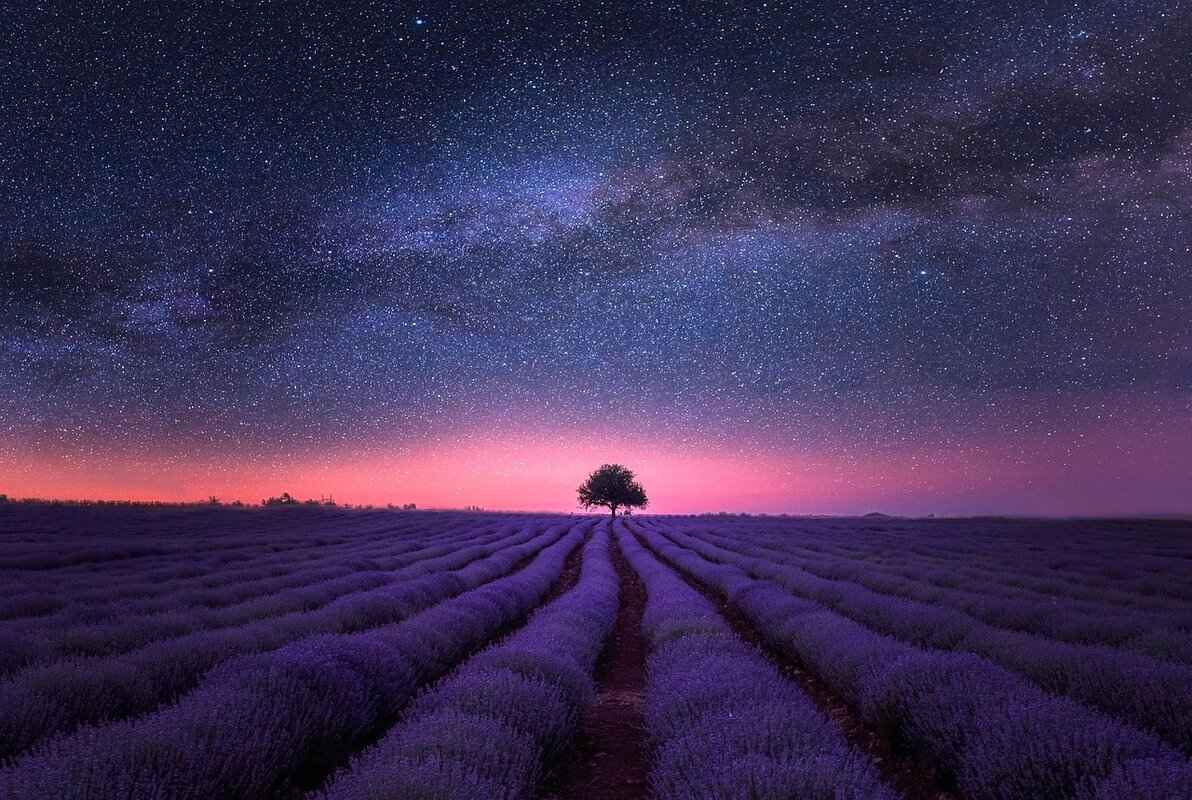This article provides essential guidelines for properly storing satin and silk night dresses, ensuring their longevity and maintaining their luxurious appearance. Discover expert tips and common mistakes to avoid.
Why Proper Storage Matters for Satin and Silk?
Understanding the importance of proper storage techniques can significantly extend the life of your satin and silk night dresses. These delicate fabrics require specific care to avoid damage. Satin and silk are known for their luxurious feel and elegant appearance, but without the right storage, they can easily become tarnished or damaged.
What Are the Best Storage Conditions for Satin and Silk?
The ideal storage conditions for satin and silk involve controlling temperature and humidity. Learn how to create the perfect environment for your cherished garments.
- Temperature Control: What’s Ideal?
- Humidity Levels: How Much is Too Much?
Maintaining a consistent temperature is crucial for preserving the integrity of satin and silk. The optimal range is between 60°F and 75°F. Avoid areas that experience extreme temperature fluctuations.
Excessive humidity can lead to mold and mildew. The ideal humidity level for storing satin and silk night dresses is around 40% to 60%. Consider using a dehumidifier in damp areas.
Should You Fold or Hang Your Night Dresses?
Deciding whether to fold or hang your satin and silk night dresses can impact their shape and fabric integrity. Explore the pros and cons of each method.
- Hanging Techniques: What Works Best?
- Folding Tips: How to Avoid Creases?
If you choose to hang your dresses, use padded hangers to prevent stretching. Ensure the fabric is not bunched up to avoid creasing.
Folding satin and silk requires careful attention. Lay the garment flat and fold it in thirds, placing acid-free tissue paper between layers to avoid creases.
What Materials Should You Use for Storage?
The choice of storage materials can influence the longevity of your satin and silk night dresses. Discover the best storage options to protect your garments.
- Choosing the Right Garment Bag:
- Using Acid-Free Tissue Paper: Why It’s Important
Selecting a breathable garment bag is essential for protecting satin and silk. Look for bags made of cotton or linen that allow air circulation.
Acid-free tissue paper can help prevent creasing and damage. Place sheets of tissue paper inside the folds of your dress to maintain its shape.
What Common Mistakes Should You Avoid?
Identifying and avoiding common storage mistakes can save your satin and silk night dresses from irreversible damage. This section highlights key pitfalls to watch out for.
- Ignoring Fabric Care Labels: Why They Matter
- Storing in Direct Sunlight: What Are the Risks?
Fabric care labels provide essential information for proper maintenance. Always follow these guidelines to protect your garments from wear and tear.
Direct sunlight can fade and weaken satin and silk fabrics. Always store your garments in a dark, cool place to preserve their color and quality.
By following these essential guidelines, you can ensure that your satin and silk night dresses remain in pristine condition for years to come. Proper storage not only protects your investment but also allows you to enjoy the elegance of these luxurious fabrics whenever you wear them.

Why Proper Storage Matters for Satin and Silk?
When it comes to preserving the beauty and longevity of your satin and silk night dresses, understanding the importance of proper storage techniques is paramount. These luxurious fabrics, known for their delicate nature, require specific care to avoid damage and maintain their exquisite appearance. In this section, we will delve into why proper storage matters and how it can significantly extend the life of your cherished garments.
Delicate Fabrics Demand Attention
Satin and silk are not just ordinary materials; they are luxurious fabrics that can easily be damaged if not treated with care. The fibers in these materials are delicate, making them susceptible to tears, creases, and discoloration. Proper storage techniques can help mitigate these risks, ensuring that your night dresses remain in pristine condition for years to come.
Protection from Environmental Factors
One of the primary reasons proper storage is essential is to protect your satin and silk garments from environmental factors. Humidity and temperature fluctuations can lead to mold, mildew, and fabric degradation. By storing your dresses in a controlled environment, you can significantly reduce the risk of such damage.
Preserving the Shape and Structure
Another critical aspect of proper storage is maintaining the shape and structure of your garments. Hanging or folding satin and silk improperly can lead to unwanted creases, stretching, or misshaping. By following best practices for storage, you can ensure that your dresses retain their original form, making them ready to wear whenever you desire.
Enhancing Longevity
Investing in quality satin and silk night dresses can be costly. Therefore, understanding the proper storage methods is a wise decision that enhances the longevity of your investment. By taking the time to store these garments correctly, you can enjoy their luxurious feel and appearance for many seasons to come.
Emotional Value
Lastly, many satin and silk night dresses hold sentimental value—perhaps they were a gift, or you wore them on a special occasion. Proper storage not only protects the fabric but also preserves the memories associated with these cherished items. Treating your garments with the care they deserve reflects the emotional significance they hold.
In summary, understanding why proper storage matters for satin and silk night dresses is crucial for anyone who values these luxurious fabrics. By protecting them from environmental factors, preserving their shape, enhancing their longevity, and honoring their emotional value, you can ensure that your satin and silk garments remain as stunning as the day you acquired them. Remember, a little effort in storage can go a long way in maintaining the beauty and integrity of your beloved night dresses.

What Are the Best Storage Conditions for Satin and Silk?
When it comes to preserving the beauty and integrity of your cherished satin and silk garments, understanding the best storage conditions is essential. These luxurious fabrics, known for their delicate texture and elegant appearance, require specific environmental controls to prevent damage. In this section, we will explore how to create the perfect storage environment for your satin and silk night dresses.
Maintaining a consistent temperature is crucial for the longevity of satin and silk. Ideally, the storage environment should be kept between 60°F and 75°F (15°C to 24°C). This range helps to prevent fabric degradation and keeps the fibers intact. Fluctuations in temperature can lead to shrinkage or stretching, which can ruin the fit of your garments.
Humidity plays a significant role in the preservation of satin and silk. The ideal humidity level for storage should be between 40% and 60%. Excessive humidity can lead to the growth of mold and mildew, which can irreparably damage your precious garments. To monitor humidity levels, consider using a hygrometer in your storage area.
One common question is whether to fold or hang satin and silk night dresses. Each method has its advantages and disadvantages:
- Hanging: Hanging can help maintain the shape of your dresses, but it may also lead to stretching if not done correctly. Use padded hangers to support the fabric.
- Folding: Folding can prevent stretching but may create creases if not done carefully. Use acid-free tissue paper to cushion the folds.
The materials you choose for storing your satin and silk garments can greatly impact their longevity. Consider the following:
- Garment Bags: Opt for breathable garment bags made from cotton or muslin. Avoid plastic, as it can trap moisture and lead to mold.
- Acid-Free Tissue Paper: Place acid-free tissue paper between folds to prevent creasing and protect delicate fabrics.
To ensure the best care for your satin and silk night dresses, avoid these common pitfalls:
- Ignoring Fabric Care Labels: Always check and follow the care instructions provided on the labels to maintain the quality of your garments.
- Storing in Direct Sunlight: Keep your dresses away from direct sunlight, as UV rays can fade colors and weaken the fabric.
By taking the time to understand and implement the ideal storage conditions for your satin and silk night dresses, you can ensure they remain beautiful and wearable for years to come. Remember, a little care goes a long way in preserving the luxury and elegance of these delicate fabrics.
Temperature Control: What’s Ideal?
When it comes to storing your luxurious satin and silk night dresses, temperature control is a key factor that should not be overlooked. These delicate fabrics are sensitive to changes in their environment, and maintaining a consistent temperature is crucial for their preservation. In this section, we will explore the ideal temperature range for storing satin and silk, as well as the potential risks associated with improper temperature management.
The ideal temperature for storing satin and silk night dresses typically ranges between 60°F to 75°F (15°C to 24°C). This range helps to prevent any adverse effects on the fabric, such as fading or degradation. It is important to avoid extreme temperatures, as both heat and cold can compromise the integrity of these luxurious materials.
Maintaining a consistent temperature is vital because fluctuations can lead to various issues. For instance, high temperatures can cause the fibers in satin and silk to break down, leading to fraying and loss of sheen. On the other hand, low temperatures can make the fabrics brittle, increasing the risk of tears during handling.
- Use a thermometer in your storage area to keep track of the temperature.
- Consider using a dehumidifier or air conditioner to maintain the desired temperature, especially in warmer climates.
- Regularly check for any changes in temperature, especially during seasonal transitions.
Improper temperature management can lead to irreversible damage to your satin and silk garments. Here are some common risks:
- Fading: High temperatures can cause colors to fade, diminishing the vibrancy of your dresses.
- Loss of Texture: Excessive heat can alter the texture of the fabric, making it feel rough or coarse.
- Mold Growth: Inconsistent temperatures can lead to humidity fluctuations, promoting mold and mildew growth.
To ensure that your satin and silk night dresses remain in pristine condition, consider the following best practices:
- Store your garments in a cool, dry place away from direct sunlight.
- Use breathable garment bags to protect your dresses from temperature extremes.
- Regularly inspect your storage area for any signs of temperature fluctuations.
By implementing these practices, you can significantly extend the life of your satin and silk garments, keeping them looking beautiful for years to come.
Humidity Levels: How Much is Too Much?
When it comes to preserving your luxurious satin and silk night dresses, understanding the impact of humidity is crucial. Excessive moisture in the air can create a breeding ground for mold and mildew, which can lead to irreversible damage to these delicate fabrics. In this section, we will explore the ideal humidity levels for storing satin and silk night dresses and provide practical tips to help you maintain the perfect environment for your cherished garments.
The optimal humidity level for storing satin and silk night dresses is typically between 40% and 60%. This range is ideal because it helps to prevent moisture-related issues while also ensuring that the fabrics remain supple and do not dry out. When humidity levels exceed 60%, the risk of mold and mildew significantly increases, especially in poorly ventilated spaces.
To maintain the right humidity level, consider using a hygrometer, a device that measures the moisture content in the air. Place it in the storage area where your night dresses are kept. If you notice that humidity levels are consistently above the ideal range, you may need to take action.
- Use a Dehumidifier: If your storage area is prone to high humidity, investing in a dehumidifier can be a wise decision. This appliance helps to regulate moisture levels effectively.
- Ventilation: Ensure proper airflow in the storage area. Open windows or use fans to help circulate air, especially during humid months.
- Absorbent Materials: Place moisture-absorbing materials, such as silica gel packs, in your storage containers to help absorb excess humidity.
Being proactive is key to preventing damage. Here are some signs that indicate humidity levels may be too high:
- Musty Odors: A damp smell in the storage area can indicate mold growth.
- Visible Mold: Any signs of mold or mildew on your dresses or storage materials is a clear warning sign.
- Fabric Texture Changes: If the silk or satin feels sticky or clammy, it may be a result of excessive humidity.
To safeguard your satin and silk night dresses from the perils of high humidity, consider the following tips:
- Use Breathable Storage Bags: When storing your dresses, opt for breathable garment bags made of cotton or linen. Avoid plastic, as it can trap moisture.
- Store in a Cool, Dry Place: Choose a storage location that is not prone to temperature fluctuations and has good ventilation.
- Regular Checks: Periodically inspect your storage area and garments for any signs of moisture buildup or damage.
By understanding and controlling humidity levels, you can significantly extend the life of your satin and silk night dresses. Remember, these luxurious fabrics deserve the utmost care to maintain their beauty and elegance.

Should You Fold or Hang Your Night Dresses?
When it comes to storing your luxurious satin and silk night dresses, a significant decision looms: should you fold or hang them? This choice can greatly influence the fabric’s shape and integrity, making it essential to understand the advantages and disadvantages of each method.
- Maintains Shape: Hanging your night dresses helps them retain their original form, preventing unwanted creases and folds that can occur when folded.
- Better Air Circulation: Hanging allows for better air circulation around the fabric, reducing the risk of moisture accumulation that can lead to mildew.
- Easy Access: When hung, your dresses are easier to see and access, making it convenient to choose an outfit quickly.
- Stretching: If not hung properly, the weight of the fabric can cause stretching, particularly at the shoulders.
- Storage Space: Hanging requires more vertical space, which may not be ideal for those with limited closet space.
- Space Saving: Folding night dresses can save space in your wardrobe, allowing you to store more garments.
- Prevents Stretching: Properly folded garments are less likely to stretch out of shape, especially if stored in a drawer.
- Creasing: Folding can lead to creases and wrinkles, which may be difficult to remove from delicate fabrics.
- Limited Airflow: Storing folded garments may restrict airflow, increasing the risk of moisture retention and potential damage.
If you decide to hang your satin and silk night dresses, follow these best practices:
- Use padded hangers to prevent shoulder bumps and maintain the dress’s shape.
- Ensure the dresses are spaced apart to allow for air circulation.
- Hang in a cool, dry area away from direct sunlight to avoid fading.
For those who prefer folding, here are some step-by-step instructions to minimize creases:
1. Lay the dress flat on a clean surface.2. Fold the dress in half vertically, aligning the seams.3. Fold the sleeves inward to create a neat rectangle.4. Starting from the bottom, fold the dress upwards in sections, ensuring each fold is smooth.5. Store in a breathable garment bag or drawer.
Ultimately, the choice between folding and hanging your satin and silk night dresses depends on your storage space and personal preference. By understanding the pros and cons of each method, you can make an informed decision that helps maintain the beauty and longevity of your cherished garments.
Hanging Techniques: What Works Best?
When it comes to preserving the beauty and elegance of your satin and silk night dresses, hanging techniques play a crucial role. These delicate fabrics require special care to maintain their shape and prevent any potential damage. In this section, we will explore the best practices for hanging your cherished garments effectively.
Hanging your dresses can help prevent unwanted creases and maintain their natural drape. Unlike folding, which can lead to unsightly lines, hanging allows the fabric to fall freely, preserving its luxurious appearance. However, it is essential to use the right techniques to ensure that your garments remain in top condition.
Choosing the right hanger is vital for the proper storage of your satin and silk dresses. Here are some options:
- Wooden Hangers: These provide sturdy support and can help maintain the shape of your dresses. Ensure they are smooth and free from splinters to prevent snagging.
- Padded Hangers: Ideal for delicate fabrics, padded hangers prevent slipping and reduce the risk of creases.
- Clip Hangers: If your dress has straps, clip hangers can be an excellent option. Just be cautious not to clip too tightly, as this can leave marks.
To effectively hang your satin and silk night dresses, follow these steps:
1. Choose a spacious area with good air circulation.2. Ensure the hanger is appropriate for the dress style.3. Gently place the dress on the hanger, ensuring it is evenly distributed.4. Avoid folding the fabric over the hanger to prevent creases.5. Store the hanger in a cool, dark place away from direct sunlight.
While hanging your dresses can be beneficial, there are some common mistakes to avoid:
- Using Wire Hangers: These can distort the shape of your garments and create unwanted creases.
- Overcrowding: Hanging too many dresses in one space can lead to crushing and wrinkling.
- Ignoring Fabric Care: Always check the care label to ensure you are following the manufacturer’s recommendations.
To ensure your hangers are doing their job effectively, keep them clean and in good condition. Regularly check for any damage or rough spots that could snag your dresses. Additionally, consider using a protective cover over your padded hangers to keep them dust-free and in pristine condition.
By following these expert tips and techniques for hanging your satin and silk night dresses, you can maintain their shape and elegance for years to come. Proper care not only enhances their appearance but also ensures that your investment remains a cherished part of your wardrobe.
Folding Tips: How to Avoid Creases?
When it comes to caring for your satin and silk night dresses, one of the most crucial aspects is learning how to fold these luxurious fabrics properly. Improper folding can lead to unsightly creases that may be difficult to remove. In this section, we will explore effective folding techniques to ensure your delicate garments remain in pristine condition.
Both satin and silk are known for their smooth texture and elegant appearance. However, their delicate nature means they require special handling. Folding these fabrics correctly not only helps maintain their shape but also prevents damage that can result from improper storage.
Follow these detailed steps to fold your satin and silk night dresses without causing creases:
- Prepare Your Workspace: Choose a clean, flat surface that is free from dust and debris. Lay down a soft cotton cloth to protect the fabric.
- Start with a Clean Dress: Ensure that your garment is clean and completely dry before folding. Any stains or moisture can lead to permanent marks.
- Lay the Dress Flat: Place the dress face down on the prepared surface. Smooth out any wrinkles gently with your hands.
- Fold the Sleeves: Bring each sleeve towards the center of the dress, creating a straight line along the sides. This helps reduce bulk and prevents creasing.
- Fold the Dress in Half: Bring the bottom hem of the dress up to meet the neckline. Ensure the fabric is aligned properly to avoid any twisting.
- Final Fold: Depending on the length of your dress, you may need to fold it in half again or into thirds. Aim for a compact shape that fits comfortably in your storage space.
Once your dress is folded, the way you store it can significantly impact its condition:
- Use Acid-Free Tissue Paper: Place sheets of acid-free tissue paper between folds to prevent direct contact, which can lead to creasing.
- Choose a Suitable Storage Container: Opt for breathable fabric bags or boxes that allow air circulation. Avoid plastic bags that can trap moisture.
- Avoid Overcrowding: Store your dresses in a way that they are not crammed together. This helps prevent unwanted creases from forming.
To maintain the quality of your garments, it’s essential to avoid certain practices:
- Don’t Press Too Hard: When folding, avoid pressing down too forcefully, as this can create permanent creases.
- Avoid Folding on Seams: Try to fold along the body of the fabric rather than on seams, which can be more prone to creasing.
- Don’t Store in Direct Sunlight: Keep your folded dresses in a dark, cool place to prevent fading and weakening of the fabric.
By following these folding tips and storage guidelines, you can keep your satin and silk night dresses looking beautiful and fresh for years to come. Proper care and attention to detail will ensure that these luxurious fabrics remain a cherished part of your wardrobe.

What Materials Should You Use for Storage?
When it comes to preserving the beauty and longevity of your satin and silk night dresses, the choice of storage materials plays a crucial role. Understanding which materials provide the best protection is essential for maintaining the luxurious feel and appearance of these delicate fabrics. In this section, we will explore the best storage options and techniques to keep your garments in pristine condition.
Choosing the right storage materials can significantly influence the lifespan of your satin and silk night dresses. Below are some of the best options to consider:
- Breathable Garment Bags: Opt for garment bags made from breathable materials such as cotton or linen. These fabrics allow air circulation, preventing moisture buildup that can lead to mildew and mold. When selecting a garment bag, ensure it is spacious enough to avoid crushing your dresses.
- Acid-Free Tissue Paper: Utilizing acid-free tissue paper is vital for protecting your garments from creases and damage. When storing your dresses, gently stuff them with tissue paper to maintain their shape. This method not only prevents unsightly folds but also absorbs any excess moisture.
- Wooden Hangers: If you decide to hang your night dresses, invest in high-quality wooden hangers. These provide better support and reduce the risk of stretching compared to plastic hangers. Look for hangers with rounded edges to prevent fabric distortion.
- Storage Boxes: For long-term storage, consider using acid-free storage boxes. These boxes protect your garments from dust, light, and pests. Make sure to line the boxes with acid-free tissue paper for added protection.
Proper usage of storage materials is just as important as the materials themselves. Here are some guidelines:
- Layering with Tissue Paper: When folding your dresses for storage, place sheets of acid-free tissue paper between layers. This will help maintain their shape and prevent fabric-on-fabric contact, which can lead to snags.
- Regular Checks: Periodically check on your stored garments to ensure that they remain in good condition. Look for signs of moisture, pests, or any discoloration. If you notice any issues, address them immediately to prevent further damage.
The materials you choose for storage significantly impact the longevity of your satin and silk night dresses. Poor choices can lead to:
- Fading: Direct contact with non-breathable materials can cause fading due to trapped moisture and heat.
- Mold Growth: Inadequate ventilation can create a humid environment conducive to mold growth, which can ruin your garments.
- Creasing: Incorrect storage methods can lead to permanent creases that detract from the elegance of your dresses.
By selecting appropriate storage materials and following best practices, you can ensure that your satin and silk night dresses remain beautiful and ready to wear for years to come. Remember, the key to preserving these luxurious fabrics lies in the details of how you store them.
Choosing the Right Garment Bag
When it comes to preserving the beauty and longevity of your satin and silk night dresses, is crucial. These delicate fabrics require special attention to avoid damage, and a breathable garment bag can make all the difference. Below, we explore the essential features to consider when selecting a garment bag for your cherished dresses.
Breathability is a key factor in garment bags because it allows air circulation, which helps prevent moisture buildup. Moisture can lead to mold and mildew, especially in humid environments. Therefore, opting for a garment bag made from breathable materials, such as cotton or a polyester blend, is essential to keep your satin and silk dresses in pristine condition.
When choosing a garment bag, ensure it has protective features that cater specifically to delicate fabrics. Look for:
- Padding: A padded garment bag provides extra protection against bumps and impacts.
- Full-Length Zippers: A full-length zipper allows for easy access while ensuring the bag is fully closed, protecting your garments from dust and dirt.
- Interior Pockets: These pockets can be useful for storing accessories, keeping everything organized and protected.
Choosing a garment bag that fits your dresses properly is vital. A bag that is too small can cause creasing, while one that is too large may allow your dresses to move around, leading to potential damage. Opt for a bag that is specifically designed for long dresses to ensure a snug fit without compromising on space.
The length and style of the garment bag should match the type of dresses you own. For instance, floor-length gowns require longer garment bags, while shorter dresses can be accommodated in mid-length bags. Additionally, consider whether you prefer a hanging garment bag or one that can be folded, depending on your storage space and preferences.
Another important feature to consider is UV protection. Some garment bags come with UV-resistant materials that help shield your dresses from harmful sunlight, which can cause fading over time. If you plan to store your dresses in a location exposed to light, investing in a UV-protective garment bag is a wise choice.
While it may be tempting to opt for a cheaper option, investing in a high-quality garment bag can save you money in the long run by protecting your valuable dresses. Look for reputable brands known for their durability and protective features, and don’t hesitate to read reviews to ensure you’re making an informed choice.
In summary, selecting the right garment bag for your satin and silk night dresses involves considering factors such as breathability, protective features, size, style, UV protection, and overall quality. By taking the time to choose wisely, you can ensure that your cherished garments remain in excellent condition for years to come.
Using Acid-Free Tissue Paper: Why It’s Important
When it comes to storing your cherished satin and silk night dresses, one of the most effective methods to ensure their preservation is the use of acid-free tissue paper. This specialized paper plays a vital role in maintaining the quality and integrity of delicate fabrics. In this section, we will explore the significance of acid-free tissue paper and how to utilize it effectively during storage.
Acid-free tissue paper is designed to be free from harmful acids that can cause deterioration in fabrics over time. Unlike regular tissue paper, which may contain acids that lead to yellowing and brittleness, acid-free tissue paper is manufactured to be pH neutral. This quality makes it an ideal choice for protecting your luxurious garments.
Using acid-free tissue paper when storing night dresses helps to prevent creasing, crushing, and other forms of damage. Here are some key benefits:
- Prevention of Creases: By placing sheets of acid-free tissue paper between folds or layers of your night dresses, you can significantly reduce the risk of unsightly creases.
- Moisture Absorption: Acid-free tissue paper can help absorb any excess moisture that may be present, thereby reducing the risk of mold and mildew.
- Protection from Dust: Wrapping garments in acid-free tissue paper creates a barrier against dust and dirt, keeping your dresses clean and fresh.
To maximize the protective benefits of acid-free tissue paper, follow these simple steps:
1. Start with clean, dry night dresses.2. Lay the dress flat on a clean surface.3. Place sheets of acid-free tissue paper inside the bodice and between layers.4. Fold the dress gently, ensuring the tissue paper stays in place.5. Store the folded dress in a breathable garment bag or box.
Acid-free tissue paper is readily available at craft stores, specialty packaging shops, and online retailers. When purchasing, look for products specifically labeled as acid-free or archival quality to ensure they meet the necessary standards for fabric preservation.
In addition to using acid-free tissue paper, consider the following tips to further protect your satin and silk night dresses:
- Choose the Right Storage Location: Store your dresses in a cool, dark place away from direct sunlight.
- Avoid Plastic: Refrain from using plastic covers as they can trap moisture and lead to mildew.
- Inspect Regularly: Periodically check your stored garments for any signs of damage or pests.
Incorporating acid-free tissue paper into your storage routine is a simple yet effective way to ensure your satin and silk night dresses remain in pristine condition. By following these guidelines, you can enjoy your luxurious garments for years to come.

What Common Mistakes Should You Avoid?
Properly storing your satin and silk night dresses is crucial for maintaining their beauty and longevity. However, many individuals unknowingly make mistakes that can lead to irreversible damage. This section outlines key pitfalls to avoid, ensuring your cherished garments remain in pristine condition.
- Ignoring Fabric Care Labels: Fabric care labels are there for a reason. They provide essential information regarding washing, drying, and storing your garments. Ignoring these labels can lead to improper care that damages the fabric. Always read and follow the instructions carefully to ensure the best care for your satin and silk night dresses.
- Storing in Direct Sunlight: One of the most significant mistakes is storing your dresses in areas exposed to direct sunlight. Prolonged exposure can cause colors to fade and weaken the fibers, leading to irreversible damage. Make sure to store your satin and silk garments in a cool, dark place to preserve their vibrant colors and luxurious feel.
- Using Non-Breathable Storage Materials: When it comes to storage, the materials you use matter. Avoid plastic bags or containers that do not allow air circulation. Instead, opt for breathable garment bags or cotton sheets to protect your dresses from dust while allowing them to breathe. This prevents moisture buildup and reduces the risk of mold growth.
- Overcrowding in Storage: Overcrowding your storage space can lead to creasing and distortion of the fabric. When satin and silk garments are packed too tightly, they can lose their shape and develop unwanted wrinkles. Ensure there is enough space for each dress, allowing them to hang or lie flat without being compressed.
- Neglecting to Clean Before Storing: It may be tempting to toss your night dresses into storage without a second thought, but neglecting to clean them first can lead to stains setting in. Always wash or dry clean your garments according to their care instructions before storing them away. This practice helps remove any oils, perfumes, or stains that can become permanent over time.
- Using Hangers with Clips: While it may seem convenient, using hangers with clips can cause unsightly marks or indentations on satin and silk fabrics. Instead, use padded or wide hangers to support the weight of the dresses without causing damage. This method will also help maintain the garment’s shape.
- Forgetting to Check Regularly: Once your dresses are stored, it’s easy to forget about them. However, regular checks are essential to ensure that no issues, such as mold growth or pest infestations, have developed. Aim to inspect your garments every few months to catch any potential problems early.
By avoiding these common mistakes, you can significantly extend the life of your satin and silk night dresses. Proper care and attention will ensure that your garments remain as luxurious as the day you bought them, ready for any occasion.
Ignoring Fabric Care Labels: Why They Matter
When it comes to maintaining the beauty and longevity of your satin and silk night dresses, ignoring fabric care labels can lead to irreversible damage. These labels serve as a crucial guide for proper garment care, providing specific instructions that help you avoid common pitfalls. This section explores why adhering to these guidelines is essential for preserving your cherished pieces.
Fabric care labels typically include information on:
- Washing instructions: Details on whether the garment can be machine washed or should be hand washed.
- Drying methods: Recommendations for air drying or using a dryer, if applicable.
- Ironing guidelines: Information on the appropriate heat settings for ironing to avoid scorching the fabric.
- Dry cleaning: Indications on whether the garment should be dry cleaned to maintain its quality.
Each fabric has unique properties that dictate how it should be cared for. For satin and silk, which are particularly delicate, following care labels is critical for several reasons:
- Prevention of Damage: Ignoring washing instructions can lead to fabric shrinkage, fading, or even tearing.
- Maintaining Appearance: Proper care ensures that your garments retain their luxurious sheen and vibrant colors.
- Extending Lifespan: Regular adherence to care guidelines can significantly prolong the life of your night dresses.
Many people overlook the significance of these labels, often believing they can care for their garments based on general knowledge. Here are some common misconceptions:
- “All fabrics can be washed in the same way”: This belief can lead to disastrous results, especially for delicate materials like silk.
- “Dry cleaning is unnecessary”: Some garments are specifically designed for dry cleaning, and ignoring this can cause irreversible damage.
- “Heat settings don’t matter”: Using the wrong heat settings while ironing can scorch or ruin the fabric.
Understanding the symbols and terms used on care labels is essential. Here are some common symbols you may encounter:
| Symbol | Meaning |
|---|---|
| Machine wash or hand wash instructions. | |
| Indicates the garment should be dry cleaned. | |
| Heat settings for ironing. |
In summary, fabric care labels are not just suggestions; they are essential instructions that, if followed, can keep your satin and silk night dresses looking stunning for years to come. By understanding and respecting these guidelines, you can ensure that your garments remain in pristine condition, allowing you to enjoy their elegance and comfort without worry.
Storing in Direct Sunlight: What Are the Risks?
When it comes to storing your luxurious satin and silk night dresses, one of the most critical factors to consider is lighting. Specifically, exposure to direct sunlight poses significant risks that can compromise the beauty and integrity of these delicate fabrics. Understanding the implications of improper storage locations is essential for maintaining the quality of your garments.
Direct sunlight can lead to a range of issues for satin and silk fabrics. The most prominent concern is fading. Prolonged exposure to UV rays can cause the vibrant colors of your night dresses to dull, resulting in a less appealing appearance. Additionally, sunlight can weaken the fibers of the fabric, making them more susceptible to tears and damage.
Recognizing the signs of sun damage early can help you take preventative measures. Look out for:
- Faded Colors: If your once-vibrant dress appears washed out, it may have been exposed to too much light.
- Weakened Fibers: Check for thin spots or areas that feel fragile to the touch.
- Discoloration: Yellowing or spotting can indicate that the fabric has been compromised by sunlight.
To protect your satin and silk night dresses from the harmful effects of sunlight, consider the following tips:
- Store in a Dark Place: Choose a storage location that is away from direct sunlight, such as a closet with doors or a shaded area.
- Use Protective Covers: Consider using opaque garment bags or covers that block UV rays while allowing the fabric to breathe.
- Rotate Your Wardrobe: If you display your dresses, rotate them regularly to minimize sun exposure on any single piece.
While sunlight is a significant concern, other environmental factors can also impact the longevity of your satin and silk garments:
- Humidity: High humidity can lead to mold and mildew, further damaging your fabrics.
- Temperature Fluctuations: Extreme heat or cold can affect the fibers, so maintain a stable climate.
- Air Circulation: Ensure good airflow in your storage area to prevent musty odors and promote fabric health.
By understanding the risks associated with storing satin and silk in direct sunlight and implementing effective protective measures, you can ensure that your night dresses remain as stunning as the day you bought them. Remember, proper care is key to preserving the elegance and quality of your cherished garments.
Frequently Asked Questions
- How should I store my satin and silk night dresses?
To keep your satin and silk night dresses in pristine condition, store them in a cool, dry place away from direct sunlight. Use breathable garment bags and consider using acid-free tissue paper to prevent creasing.
- Is it better to fold or hang satin and silk dresses?
While both methods have their pros and cons, hanging is generally preferred for satin and silk to maintain their shape. If you choose to fold, make sure to use tissue paper between the folds to avoid creasing.
- What temperature and humidity levels are ideal for storing these fabrics?
The ideal temperature for storing satin and silk is around 60-70°F (15-21°C) with humidity levels between 40-50%. Keeping these conditions stable helps prevent damage from mold and fabric deterioration.
- Can I store my dresses in plastic bags?
It’s not recommended to use plastic bags for long-term storage as they can trap moisture and lead to mold. Opt for breathable fabric garment bags instead.
- Why are fabric care labels important?
Fabric care labels provide essential instructions for washing and storing your garments. Ignoring these labels can lead to irreversible damage, so always follow the guidelines for the best care.














